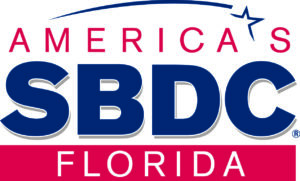
Strategies for Success!
For small businesses in the United States, securing federal contracts can provide a significant boost to growth, revenue, and visibility. The federal government sets aside a substantial portion of its procurement budget for small businesses, creating ample opportunities for those willing to compete. Every federal government purchase between $10,000 and $250,000 is automatically set aside for small businesses, as long as there are at least two companies that can provide the product or service at a fair and reasonable price.
It is crucial for contractors to learn how to compete as a small business in order to effectively navigate a highly competitive market, maximize growth opportunities, establish a strong reputation, and secure profitable contracts. Here are some important steps, effective strategies, and resources that can help small businesses successfully navigate the federal contracting process and increase their chances of securing lucrative contracts.
1. Understand the Federal Contracting Landscape
Before diving into the federal contracting arena, it’s essential to gain a thorough understanding of the process, regulations, and requirements involved. Familiarize yourself with the Federal Acquisition Regulation (FAR) and any agency-specific regulations. Explore government databases such as beta.SAM.gov and FedBizOpps (now transitioned to beta.SAM.gov) to identify potential contract opportunities.
2. Obtain the Necessary Certifications
Certain certifications can enhance your eligibility for federal contracts. For example, consider obtaining certifications such as the Small Business Administration’s 8(a) Business Development Program, Women-Owned Small Business (WOSB) certification, Service-Disabled Veteran-Owned Small Business (SDVOSB) status, or Historically Underutilized Business Zones (HUBZone) certification. These designations provide access to set-aside contracts and additional resources tailored to specific business categories.
3. Develop a Strong Capability Statement
Crafting a compelling capability statement is crucial for showcasing your business’s strengths and qualifications. This document should highlight your company’s expertise, past performance, relevant contracts, certifications, and any unique selling points. Tailor your capability statement to resonate with the specific agency or contracting officer you are targeting, addressing their needs and requirements directly.
4. Build Relationships and Network
Developing relationships with contracting officers, prime contractors, and other relevant stakeholders is key to unlocking federal contract opportunities. Attend industry events, conferences, and matchmaking sessions where you can meet potential teaming partners and decision-makers. Actively engage in online communities and join professional associations to expand your network and increase visibility.
5. Conduct Market Research
Thorough market research will enable you to identify specific agencies, programs, and contracts that align with your business capabilities. Understand the agency’s mission, goals, and procurement needs. Stay informed about upcoming contracts, trends, and changes in government priorities. This knowledge will empower you to tailor your proposals effectively and position your business as a valuable solution provider.
6. Polish Your Proposal Writing Skills
Developing a compelling and compliant proposal is critical to winning federal contracts. Understand the evaluation criteria, technical requirements, and evaluation process outlined in the solicitation documents. Ensure your proposal clearly addresses all requirements and demonstrates your ability to deliver high-quality services or products. Seek professional assistance if needed to enhance your proposal writing skills.
8. Leverage Small Business Resources:
The Small Business Administration (SBA) offers valuable resources to assist small businesses in pursuing federal contracts. These resources can help you navigate the complexities of federal contracting and hone your competitive edge. The federal government of the United States has several programs in place to support small businesses. Here are some notable ones:
- Small Business Administration (SBA) Loans: The SBA offers various loan programs, including the 7(a) Loan Program, which provides loans for general business purposes, and the Microloan Program, which offers small loans to startups and small businesses.
- Small Business Development Centers (SBDCs): The SBA funds SBDCs across the country, which provide free or low-cost consulting and training services to help small businesses with various aspects, such as business planning, marketing, financing, and more.
- Small Business Innovation Research (SBIR) and Small Business Technology Transfer (STTR) Programs: These programs provide grants and contracts to small businesses engaged in research and development with the aim of commercializing innovative technologies.
- HUBZone Program: This program encourages small businesses to locate and operate in Historically Underutilized Business Zones (HUBZones). Businesses operating in these areas can access contracting opportunities and receive preferences in federal procurement.
- Women-Owned Small Business (WOSB) Federal Contracting Program: This program helps women-owned small businesses gain access to federal contracts by setting aside certain contract opportunities exclusively for them.
- 8(a) Business Development Program: This program assists small businesses owned by socially and economically disadvantaged individuals. It provides business development support, access to government contracts, and mentoring opportunities.
- Veteran-Owned Small Business (VOSB) Program: This program helps veteran-owned small businesses compete for federal contracts by setting aside certain opportunities for them and providing assistance and resources.
- Surety Bond Guarantee Program: The SBA offers guarantees for bonds required by government and private sector contracts, helping small businesses obtain bonding and compete for contracts that require bonding.
These are just a few examples of federal government programs designed to support and promote small businesses. It’s important to note that program details, eligibility criteria, and availability may vary, so it’s advisable to visit the official websites of the relevant agencies for the most up-to-date and comprehensive information.
While the competition for federal contracts may be fierce, small businesses can position themselves for success by leveraging small business resources and following these strategies. By understanding the federal contracting landscape, obtaining relevant certifications, developing compelling capability statements, leveraging resources, networking, conducting market research, honing proposal writing skills, and exploring teaming opportunities, small businesses can significantly enhance their chances of securing federal contracts. Persistence, adaptability, and a proactive approach will be key in navigating this complex but potentially rewarding realm.
Yolanda Goodloe is an Economic Development Manager at Pinellas County Economic Development. She provides quarterly government contracting services at the Greenhouse on the 5th Wednesday of the month.


